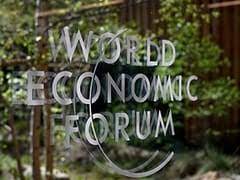BY BEN EGUZOZIE
- Global CEO Survey
-
But African leaders (52%) see improving conditions
Globally, less than 50 percent of chief executives of businesses in Africa, Asia, the Gulf, and Latin America and the Caribbean say they share a positive outlook of any significant improvement in the world economy in 2023, according to a new Oxford Business Group – OBG Global CEO survey.
Whereas 27 percent expect things to worsen, 22 percent think things will stay the same. This trend was mirrored in all regions except Latin America and the Caribbean, where 24 percent of the CEOs interviewed expect business conditions to improve in the next 12 months, compared to 45 percent in the 2019 survey.
In Africa, 52 percent of the CEOs interviewed said they expect conditions to improve on the continent in 2023. Though this number is lower when compared to previous years. For example, in 2017, a whopping 83 percent of CEOs in the continent were optimistic about future economic growth.
For many of OBG’s so-called Yellow Slice emerging markets, one of the most substantial issues has been US dollar-denominated debt. The fact that so many developing economies are exposed to how the greenback fares is a long-standing challenge, OBG observed.
Yellow Slice countries are categorised by strong economic fundamentals, as well as youthful populations of early adopters.
However, higher interest rates – an essential tool utilised by the US Federal Reserve to reduce domestic inflationary pressure several times over the course of the year – means debtor countries’ borrowing and debt-servicing costs have risen significantly, just when they may be in a position where public spending could help ease other pressures.
A typical example here is Nigeria, Africa’s biggest economy, with a projected record debt-servicing cost of N10.43 trillion by 2025, up from N3.69 trillion in 2022, according to the 2023-2025 Medium Term Expenditure Framework/Fiscal Strategy Paper (MTEF/FSP) document. This shows a 182.66 percent increase.
In particular, Nigeria’s debt-to-revenue ratio was at 80.6 percent – a figure far above World Bank’s suggested 22.5 percent for low-income countries. The International Monetary Fund (IMF) has said Nigeria, a mono-commodity dependent country, may spend 100 percent of its revenue on debt-servicing by 2026.
Unsurprisingly, despite diversification efforts, the Gulf states will continue to depend on hydrocarbons, the prices of which have trended upwards in recent months. CEOs in the region appear to be the most optimistic in terms of domestic business conditions, with 62 percent of respondents expecting them to improve. This figure is consistent with OBG’s 2019 findings.
Similarly, optimism from CEOs in Asia is trending downwards, from around 75 percent in 2017 and 2018, to 56 percent in 2019 and 47 percent in 2022, though the majority expect business conditions to remain steady or decline compared to previous years.
In terms of external factors that may impact the local business environment, the topmost concern globally is commodity price volatility, at 30 percent, followed by exchange rate volatility, at just over 20 percent.
Emerging economies are often unevenly exposed to commodity markets, and this is particularly true of oil and gas exporters, although the global dependence on rare earth and other minerals has also come on the front burner.
The more pessimistic outlook may be attributed to a number of reasons, but some countries in the region have political factors that are not seen elsewhere, in addition to large US dollar exposure.
It was against the above backdrop that the OBG in late 2022, asked more than 200 CEOs from the five regions (Africa, Asia, the Gulf, and Latin America and the Caribbean), where incidentally, most of the world’s emerging markets are located, about their expectations for business in the year ahead (2023).








